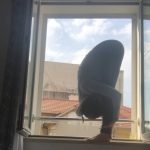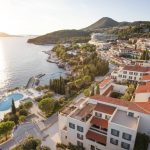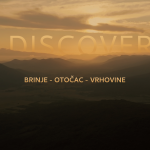April 3, 2020 – Do foreigners in Croatia feel more or less safe sitting out COVID-19 here than in their home country, and what are their experiences? A new series on TCN, with Mara Vitols-Hrgetic from Latvia in Zagreb as our 22nd contributor.
Oxford University recently published some research on government responses to coronavirus which showed that Croatia currently has the strictest measures in the world. While inconvenient, this is a good thing in terms of reducing the spread of the virus, and I am certainly not alone in my admiration of the official Croatian handling of this crisis in recent weeks, both in terms of action and communication.
But what do other expats here think? And how does it compare with the response in their home country? Would they rather sit this one out here or there? In the first of a new series on TCN, we will be featuring expats from all over the world to see what their views are on life in corona Croatia rather than back home. So far we have heard from expats in Croatia from Romania, USA, Ireland, UK, Mexico, Argentina, Spain, Singapore, Holland, Canada, India, Hong Kong, Venezuela and Germany. Next up, Mara Vitols-Hrgetic from Latvia, who runs the fabulous Forum Congress Centre in Zagreb with husband Josip.
If you would like to contribute to this series, full details are below. Now, over to Mara.
Firstly, how are you? Are you alone/with someone? Tell us a little about your situation and sanity levels.
I’m physically fine. I’m with my husband and my daughter – who is a doctor, so that gives us a high dose of peace. Our business (a venue for all kind of business events) is closed, by now we have more than 150 cancelled events. Although I’m answering as a Latvian living in Zagreb, I was born in Venezuela and lived there for almost 45 years, so my sanity levels are normal, because we’ve been training for 20 years to live in adverse circumstances.
What do you think about the economic measures the government is taking, are they helping your business?
Yes, and very much! We are grateful, because the government saved us, paying the „support for job security“ and delaying taxes. It’s impossible to predict when will the pandemic be over. On the other side, we are not as a bakery, for example, who can open doors and sell bread the very next day the measures are softened. We will have to wait at least a week for the first tiny event…
I would like to add that I’m very proud of the government (and the citizens too). Croatia suffered not only from the Covid-19, but also from an earthquake. The government had to cope with a tragedy inside another tragedy, and none of them was their fault. And I think they’ve been doing a great job in very hard circumstances.
When did you realise that corona was going to be a big issue?
When Italy locked down. I have friends and nephews living in Lombardia, so I was horrified with the stories and numbers. Then we started to read more about the history of epidemics and we realized that we were living one. Almost every century has had an epidemic… The problem is we don’t’ know how big this issue is gonna be…
What is your impression of the way Croatia is dealing with the crisis? How safe do you feel?
I feel very, very safe. Our „Fantastic 4“ is a great team. They are so professional, that almost everybody is obeying their indications and restrictions with pleasure – just some „kafić breaks“ on the coast : ) And everybody is playing an important role. I was impressed when the Army built 25 tents (completely equipped for coronavirus patients) in just 3 days, in front of the KBC Dubrava! And I was truly moved when I saw the Bad Blue Boys carrying the newborn babies from the maternity…
Croatia and Latvia have very similar numbers. Croatia has 263 cases p/1M pop, Latvia has 261. Croatia has 2 deaths p/1M pop, Latvia has 0.5.
Croatia has stronger measures than Latvia – for example, in Latvia the public transport is still working under some limitations (less passangers allowed to travel together, less routes and vehicles, etc.) But reading the news about Latvia is like reading about Croatia: government talking about economic measures to help companies, companies encouraging employees to work from home, home converted into school, school on TV, students printing 3D visors and donating them to hospitals…
The secret of Latvia’s success is its people – Latvia is known as „The singing nation“ and Latvian are known as Europe’s introverts. They don’t have any problem being with themselves…
And you don’t have this „kafić culture“ in Latvia : )
What about official communications from the authorities, compared to your home country?
In Latvia the government, institutes and the politicians are very active using their Twitter accounts and giving all needed information to the citizens. There is not a „Civil protection crisis headquarters“ as the Krizni stožer in Croatia. But Latvia is a small nation (about 2M pop) and the authorities are easy to find and meet. Latvia’s President, Egils Levits, is a good and old friend of mine and immediately sent me a message after the earthquake : )
What’s the one thing you wish you had taken with you into self-isolation.
My youngest son, who’s living in Latvia : ) The other son and my daughter are in Croatia, and that’s such a good feeling : )
One thing you have learned about yourself, and one thing you have learned about others during this crisis
I can’t talk about the crisis alone. In my case, I can’t divide the epidemic from the earthquake. When we left our building after the first earthquake, my daughter, dog and I – leaving my husband, who was in self-isolation and didn’t want to break it – and we realized that it was snowing, I thought: „what is going on?“. We were sitting on the grass – at a good distance from other neighbours, as everybody did – and then we saw a patient escaping from the hospital, wearing just underpants. It was like in the movies about the end of the world… That day I realized that we are nothing and we decide very little. I realized how fragile I was – how fragile we all are… We were fighting against two powerful and invisible forces, who could destroy so much! Mother Nature fighting back… It took me some time to accept it, to regain balance and self-confidence and to understand that man and nature (including epidemics) have been always living together.
The other thing I’ve learned (not really learned, but confirmed) was that humans can be so kind and solidary in bad times… if they could only remember that in good times : )
Thanks, Mara, stay safe and see you on the other side.
TCN is starting a new feature series on foreign experiences of sitting out COVID-19 here in Croatia compared to their home country. If you would like to contribute, the questions are below. Please also include a para about yourself and where you are from, and a link to your website if you would like. Please also send 3-4 photos minimum to [email protected] Subject Corona Foreigner
If you would be interested to record a video version for our partners www.rplus.video please let us know in the email. Thanks and stay safe.
Foreigners Self-Isolating in Croatia: Do You Feel Safer Than in Your Home Country?
Firstly, how are you? Are you alone/with someone? Tell us a little about your situation and sanity levels.
What do you think about the economic measures the government is taking, are they helping your business? (PLEASE IGNORE IF THIS DOES NOT AFFECT YOU)
When did you realise that corona was going to be a big issue?
What is your impression of the way Croatia is dealing with the crisis? How safe do you feel?
Now compare that to your home country and how they are handling it. What is Croatia doing better/worse?
What about official communications from the authorities, compared to your home country?
What’s the one thing you wish you had taken with you into self-isolation.
One thing you have learned about yourself, and one thing you have learned about others during this crisis.
TCN has recently become a partner in Robert Tomic Zuber’s new R+ video channel, initially telling stories about corona experiences. You can see the first TCN contribution from this morning, my video from Jelsa talking about the realities of running a news portal in the corona era below. If you would like to also submit a video interview, please find Robert’s guidelines below
VIDEO RECORDING GUIDE
The video footage should be recorded so that the cell phone is turned horizontally (landscape mode).
There are several rules for television and video news:- length is not a virtue- a picture speaks more than a thousand words
In short, this would mean that your story should not last more than 90 seconds and that everything you say in the report should be shown by video (for example, if you talk about empty streets, we should see those empty streets, etc.).
How to do it with your cell phone? First, use a selfie camera to record yourself telling your story for about a minute and a half. Ideally, it would be taken in the exterior, except in situations where you are reporting on things in the interior (quarantine, hospital, self-isolation, etc.). Also, when shooting, move freely, make sure everything is not static.
After you have recorded your report, you should capture footage that will tell your story with a picture, such as an earlier example with empty streets.
One of the basic rules of TV journalism is that the story is told in the same way as a journalist with his text. Therefore, we ask you for additional effort. Because we work in a very specific situation, sometimes you may not be able to capture footage for each sentence of the report. In this case, record the details on the streets: people walking, the main features of the city where you live, inscriptions on the windows related to the virus, etc.
The same rules apply if you are shooting a story from your apartment, self-isolation, quarantine. We also need you to capture footage that describes your story.
When shooting frames to cover your reports, it is important that you change the angle of the shot (in other words, shoot that empty street from several angles). Also, when shooting a detail, count at least five seconds before removing the camera to another detail.
The material should be about 5 minutes long (90 seconds of your report + frames to cover your story).
After recording everything, send us to Zagreb, preferably via WeTransfer to [email protected]










